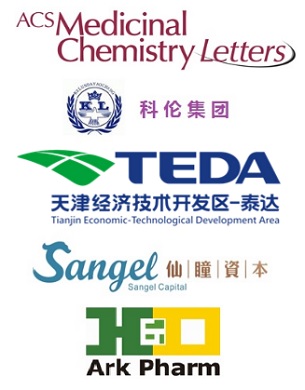国际新闻精选周五(2017年1月20日)
Synthetic peptide outlasts macular degeneration med Eylea in animal models
Neovascular, or “wet,” age-related macular degeneration is generally treated with a drug injected into the eyes. Johns Hopkins researchers have landed on a synthetic peptide with effects lasting twice as long as the drug’s, representing a potentially preferable alternative for patients.【阅读全文】
Boehringer files Humira biosimilar in EU, US
Boehringer Ingeheim's biosimilar to AbbVie's mega blockbuster Humira has been accepted for review on both sides of the Atlantic, after having shown comparability in late-stage trials.
Humira (adalimumab), an anti-TNF monoclonal antibody, pulls in annual sales of nearly $15 billion across its range of indications for inflammatory diseases.【阅读全文】
Opdivo (nivolumab) Demonstrated Efficacy and Improved Survival in Patients with Previously Treated Advanced Gastric Cancer in a Randomized Phase 3 Study
Bristol-Myers Squibb Company (NYSE:BMY) announced today the results of ONO-4538-12 demonstrating Opdivo (nivolumab) significantly reduced the risk of death by 37% (HR 0.63; p<0.0001) in patients with previously treated advanced gastric cancer refractory to or intolerant of standard therapy, a condition without current standard-of-care treatments. ONO-4538-12 is a Phase 3, randomized, double-blind, placebo-controlled clinical trial evaluating Opdivo’s efficacy and safety in such patients. The primary endpoint of the study is overall survival (OS). Median OS was 5.32 months (95% CI: 4.63 to 6.41) for patients treated with Opdivo, compared to 4.14 months (95% CI: 3.42 to 4.86) (p<0.0001) for those treated with placebo.【阅读全文】
UCB, Dermira plan psoriasis filing for Cimzia in Q3
UCB and Dermira are expecting to file anti-inflammatory Cimzia for psoriasis in the third quarter of this year, after the drug's strong performance in a late-stage trial involving patients with severe chronic plaque forms of the skin disease.
Data from the CIMPACT study, the last of three to assess Cimzia (certolizumab pegol) in this patient population, showed that the drug induced significant improvements in skin clearance compared to placebo.【阅读全文】
Shire finally finishes a 10-year trek back to the FDA with an old ADHD drug
A long 10 years after the FDA first rejected Shire’s ADHD drug SHP465, the biotech has finally got the therapy back up in front of regulators. Shire said this morning that the FDA has acknowledged receiving their application for the therapy, which has the modest goal of extending a mainstay ADHD drug’s reach from 12 hours to 16 hours.【阅读全文】
Where the money is, Part Two: The top cities and regions for biotech VC investments
Make no mistake about it. Despite another big showing for the Bay Area in the roster of VC deals that delivered in 2016, Cambridge/Boston was the clear leader in the US last year, according to the latest tally of 2016 numbers by Thomson Reuters.
There's long been a rivalry between the two coasts when it comes to investing in the life sciences. And if you include the three key hub cities in California, adding number 3 player San Diego, the West Coast continues to dominate the field. But the confluence of academia, VC cash, big pharma migrations and big science has made Cambridge the epicenter of new biotech investments globally.【阅读全文】
Statement from FDA Commissioner Robert Califf, M.D. announcing FDA Oncology Center of Excellence launch
Today the U.S. Food and Drug Administration is establishing the Oncology Center of Excellence (OCE) and appointing Dr. Richard Pazdur as its director. This will make oncology the first disease area to have a coordinated clinical review of drugs, biologics and devices across the agency’s three medical product centers.
The FDA is taking important steps to formalize the structure and implementation of the OCE as part of its overarching effort to better address the needs of cancer patients, through reorganization within the FDA’s Office of Medical Products and Tobacco.【阅读全文】
Should the U.S. try M&A to save on hep C? Gilead would be a good buy, treatment, too, they said.
Here’s a radical solution for hepatitis C treatment in the U.S.: The government could play private-equity investor and buy the leading drugmaker in the field, Gilead Sciences. Price: $156 billion. Payoff: Curing most hep C patients in the country for less than it would take to buy the drugs.
Memorial Sloan Kettering Cancer Center official Peter Bach and MIT Center for Biomedical Innovation director Mark Trusheim put forth the idea in a Tuesday op-ed for Forbes. Noting the controversy over Gilead’s hep C pricing since its groundbreaking, highly effective drug Sovaldi won FDA approval in late 2013, the co-authors said the U.S. could save billions by taking over Gilead. Millions of patients would get quick access to treatment, too, they said.【阅读全文】
Drop In FDA Approvals (And New Administration) Rekindles Fears For The Future Of Pharma
2016 was a bummer! After years of rising FDA approvals that swelled to an all-time high of 51 new drugs in 2015, they plummeted to 22 last year—a 57% drop—down to a level not seen since 2010 (Fig 1 and 2). What happened? Reversal to the mean? A harbinger of worse things to come? The answer matters because we spend $328 billion a year to buy our medicines in the U.S. ($697 billion worldwide), and the less productive the industry R&D, the more remote the prospect of enjoying affordable great drugs again.【阅读全文】
美中药源原创文章,转载注明出处并添加超链接,商业用途需经书面授权。★更多深度解析访问《美中药源》~
★ 请关注《美中药源》微信公众号 ★



















 微信号:美中药源
微信号:美中药源